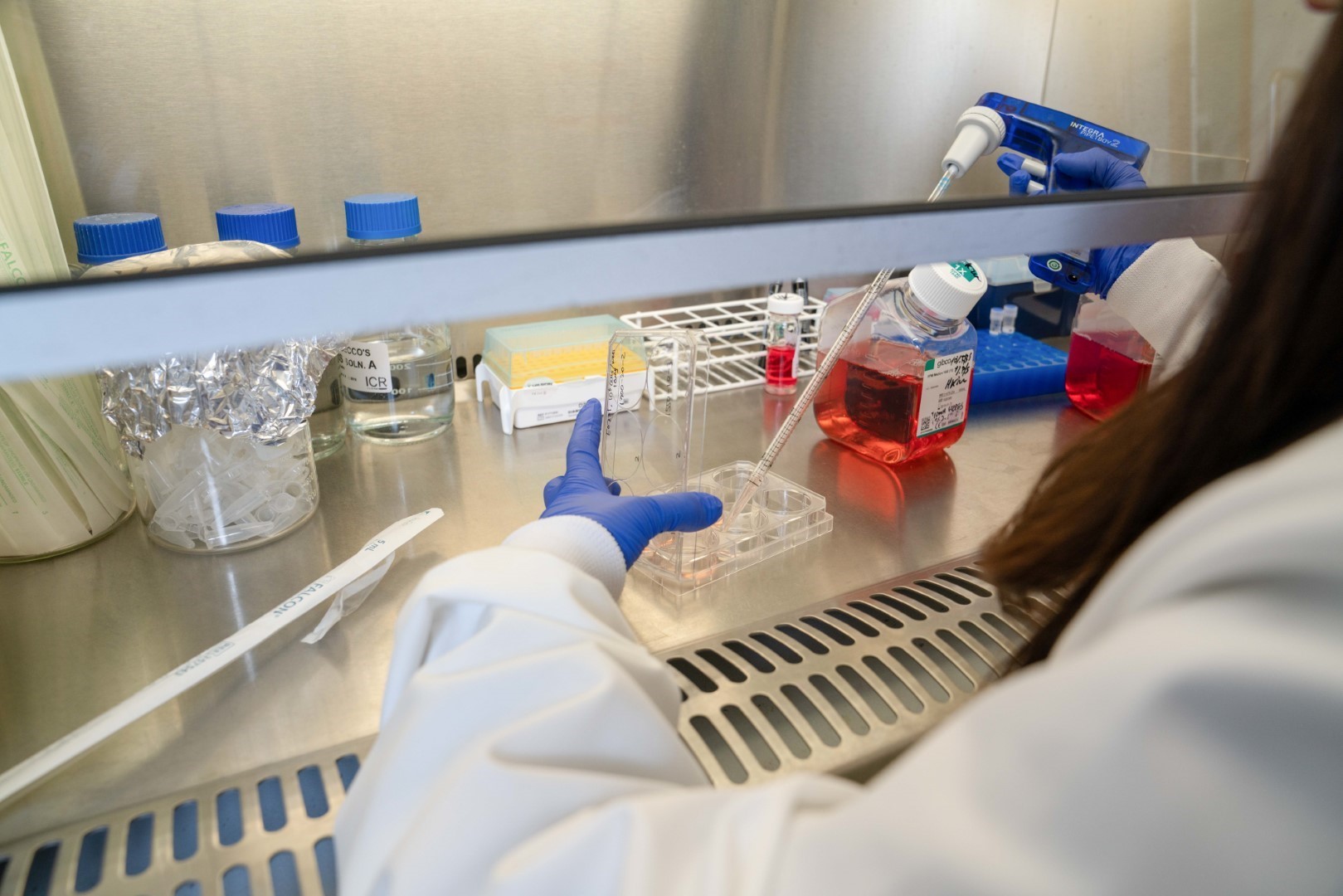New research has revealed that a one year course of a drug called a PARP inhibitor can help to reduce the risk of breast cancer recurrence, and progression to secondary breast cancer, in people with early breast cancer with a change in the BRCA gene.
New research has revealed that a one year course of a drug called a PARP inhibitor can help to reduce the risk of breast cancer recurrence, and progression to secondary breast cancer, in people with early breast cancer with a change in the BRCA gene.

New findings
A team of international researchers, including researchers based at the Breast Cancer Now Toby Robins Research Centre at the Institute of Cancer Research in London, has found that the drug olaparib can help reduce the risk of breast cancer recurrence for those with changes in the BRCA genes.
Led by Professor Andrew Tutt, the OlympiA trial recruited people aged between 36-50 years old with HER2 negative primary breast cancer, who were born with a change to the BRCA gene that is known to increase the likelihood of developing breast cancer. 1836 people (including six men) took part and were randomly split into two groups. One group received olaparib, whereas the other group received a placebo, taken twice daily for one year.
Those who received olaparib had a 42% reduction in risk of breast cancer recurrence, with 85.9% of those given olaparib for a year after treatment, saw no return, relapse, or spread of their breast cancer three years later, compared with 77.1% who were taking a placebo tablet.
Stopping progression
This preventative effect was also applicable when the researchers looked at the development of secondary breast cancer only. After three years, found that 87.5% of people who received olaparib did not see their disease progress into secondary breast cancer compared to 80.4% in the placebo group.
The OlympiA trial provides strong evidence that one year of olaparib, as a follow on from standard surgery and chemotherapy, can help to reduce the risk of recurrence and prevent progression to secondary breast cancer in people with high-risk early breast cancer that has changes to the BRCA genes.
Finding a new way
Changes in the BRCA1 or BRCA2 genes are found in approximately 1 in 20 breast cancer patients and inheriting these changes can greatly increase someone’s risk of developing breast cancer in their lifetime. The hope is that olaparib could provide a new treatment that specifically targets early breast cancer linked to inherited changes to a BRCA gene
Dr Simon Vincent, Director of Research, Support and Influencing at Breast Cancer Now, said:
‘Every year thousands of women in the UK are diagnosed with hereditary breast cancer, caused by an altered BRCA gene. Finishing active hospital treatment can be an incredibly difficult time, with many women calling our Helpline to share their anxiety and fears of their breast cancer coming back, so finding effective new ways to prevent recurrence is vitally important.’
Until now, there has been no treatment that specifically targets breast cancer with these changes to reduce the risk of recurrence.
‘It’s extremely exciting that this ground-breaking study could pave the way for targeted treatment for women with high risk HER2 negative primary breast cancer with altered BRCA genes, preventing recurrence and potentially helping to stop women dying from this devastating disease. Olaparib must now be promptly submitted for licensing, and then assessed for use on the NHS, so that women with this type of breast cancer start to benefit from this new discovery as soon as possible.’
‘This research breakthrough is testament to the tireless efforts, over the last 20 years, of world-class researchers - including many in the UK funded by Breast Cancer Now - who have uncovered weaknesses in breast cancer cells and laid the foundations for this exciting discovery.’
If you have any concerns about breast cancer, you can speak to our expert nurses on our free Helpline at 0808 800 6000 or by using our confidential Ask Our Nurses service.
The study was published in the New England Journal of Medicine.
Find out more about the research projects we're funding to discover how we can prevent breast cancer, save lives, and help people to live well with and beyond the disease.